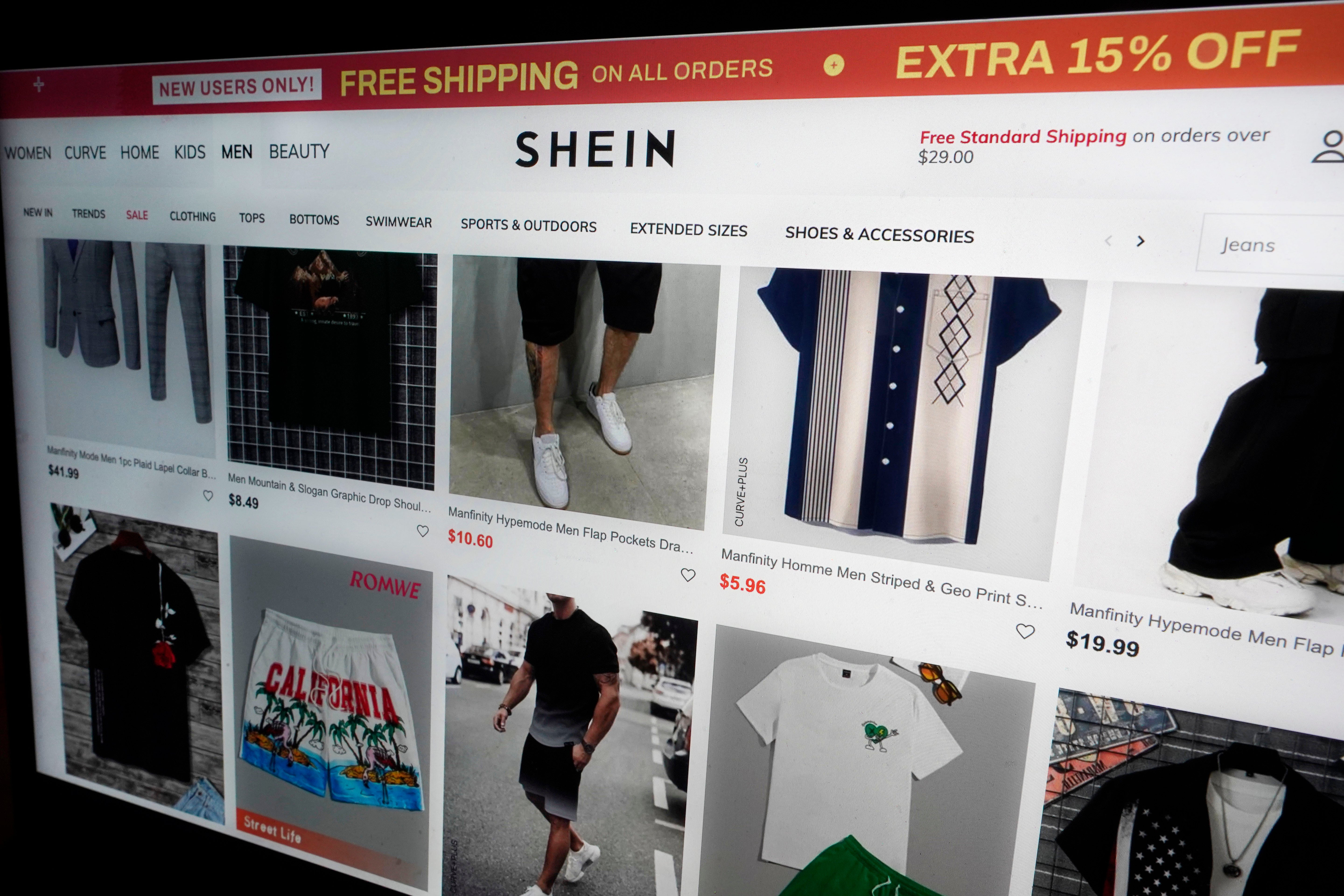Chinese e-retailer Temu files lawsuit in US against rival Shein, alleging antitrust violations
Chinese e-commerce retailer Temu has filed a lawsuit accusing its rival Shein of violating U.S. antitrust law by blocking clothing manufacturers from working with Temu

Your support helps us to tell the story
From reproductive rights to climate change to Big Tech, The Independent is on the ground when the story is developing. Whether it's investigating the financials of Elon Musk's pro-Trump PAC or producing our latest documentary, 'The A Word', which shines a light on the American women fighting for reproductive rights, we know how important it is to parse out the facts from the messaging.
At such a critical moment in US history, we need reporters on the ground. Your donation allows us to keep sending journalists to speak to both sides of the story.
The Independent is trusted by Americans across the entire political spectrum. And unlike many other quality news outlets, we choose not to lock Americans out of our reporting and analysis with paywalls. We believe quality journalism should be available to everyone, paid for by those who can afford it.
Your support makes all the difference.Chinese e-commerce retailer Temu has filed a lawsuit in Massachusetts accusing its rival Shein of violating U.S. antitrust law by preventing garment makers from working with it.
Temu, which is owned by popular Chinese e-commerce site Pinduoduo Inc., is alleging that Shein has compelled clothing manufacturers to submit to unfair supply chain arrangements preventing them from working with Temu after it entered the U.S. market in 2022.
Shein (SHE-in) and Temu (TEE-mu) are fast-rising online shopping platforms. Shein has grabbed the largest share of the fast fashion market in the U.S., at over 50%, according to Temu's complaint. Temu is the most downloaded app in the U.S., according to the website data.ai, formerly App Annie, which tracks app rankings. It offers everything from apparel to household goods at similarly competitive prices.
“Shein has engaged in a campaign of threats, intimidation, false assertions of infringement, and attempts to impose baseless punitive fines and has forced exclusive dealing arrangements on clothing manufacturers,” according to the complaint Temu filed on July 14 with the U.S. District Court for the District of Massachusetts.
In an emailed statement, Temu said that Shein also punished merchants that worked with Temu by imposing “extrajudicial fines" and forced retailers to assign their intellectual property rights to Shein, which could then seek to enforce these rights against those who also operate on Temu.
“For a long time, we have exercised significant restraint and refrained from pursuing legal actions. However, Shein’s escalating attacks leave us no choice but to take legal measures to defend our rights and the rights of those merchants doing business on Temu, as well as the consumers’ rights to a wide variety of affordable products,” the retailer said in the statement.
Shein did not immediately respond to AP with a comment, though it previously said that the case was “without merit” and that the firm would defend itself against the allegations.
Earlier, Shein sued Temu in Illinois, asserting that it engaged in deceptive business practices and created impostor pages that violated copyrights and trademarks.
China's regulators have cracked down on the widespread practice by internet firms there of forcing retailers, brands and suppliers to work exclusively with them.
Both Shein and Temu have gained attention as imports to the U.S. via their platforms have surged.
Just days ago, a filing in California by three U.S. fashion designers accused Shein of copyright infringement so aggressive that it amounts to racketeering. The filing alleges the company has violated the Racketeer Influenced and Corrupt Organizations Act, better known as RICO, a law originally crafted to prosecute organized crime.
A Congressional report published last month questioned both companies' compliance with efforts to prevent goods made by forced labor from being sold on their platforms.
An anonymous coalition of brands and human rights advocates called "Shut Down Shein” has been lobbying lawmakers seeking to increase scrutiny on the fast fashion site.